Zhijun Yin
Optimizing Domain-Adaptive Self-Supervised Learning for Clinical Voice-Based Disease Classification
Jan 29, 2026Abstract:The human voice is a promising non-invasive digital biomarker, yet deep learning for voice-based health analysis is hindered by data scarcity and domain mismatch, where models pre-trained on general audio fail to capture the subtle pathological features characteristic of clinical voice data. To address these challenges, we investigate domain-adaptive self-supervised learning (SSL) with Masked Autoencoders (MAE) and demonstrate that standard configurations are suboptimal for health-related audio. Using the Bridge2AI-Voice dataset, a multi-institutional collection of pathological voices, we systematically examine three performance-critical factors: reconstruction loss (Mean Absolute Error vs. Mean Squared Error), normalization (patch-wise vs. global), and masking (random vs. content-aware). Our optimized design, which combines Mean Absolute Error (MA-Error) loss, patch-wise normalization, and content-aware masking, achieves a Macro F1 of $0.688 \pm 0.009$ (over 10 fine-tuning runs), outperforming a strong out-of-domain SSL baseline pre-trained on large-scale general audio, which has a Macro F1 of $0.663 \pm 0.011$. The results show that MA-Error loss improves robustness and content-aware masking boosts performance by emphasizing information-rich regions. These findings highlight the importance of component-level optimization in data-constrained medical applications that rely on audio data.
Role and Use of Race in AI/ML Models Related to Health
Apr 01, 2025Abstract:The role and use of race within health-related artificial intelligence and machine learning (AI/ML) models has sparked increasing attention and controversy. Despite the complexity and breadth of related issues, a robust and holistic framework to guide stakeholders in their examination and resolution remains lacking. This perspective provides a broad-based, systematic, and cross-cutting landscape analysis of race-related challenges, structured around the AI/ML lifecycle and framed through "points to consider" to support inquiry and decision-making.
Catalysts of Conversation: Examining Interaction Dynamics Between Topic Initiators and Commentors in Alzheimer's Disease Online Communities
Dec 18, 2024
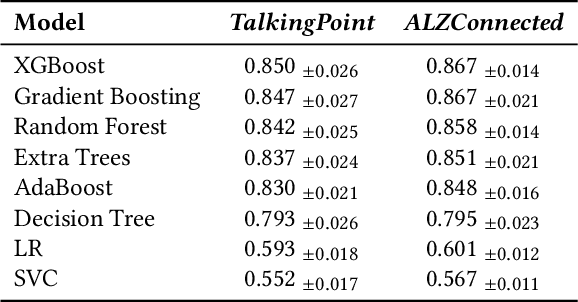
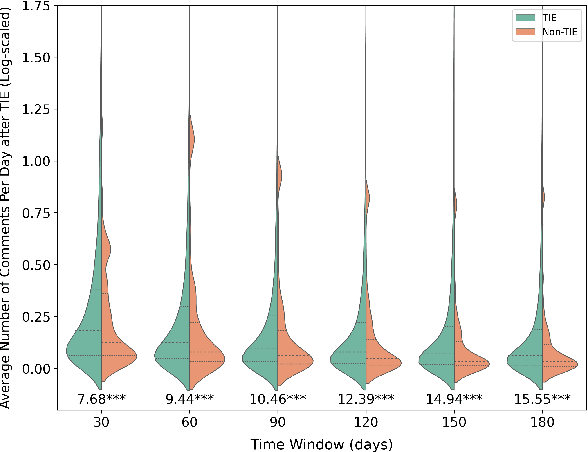
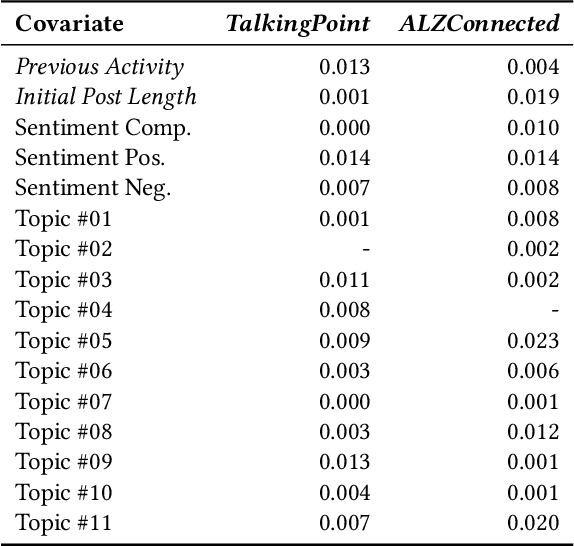
Abstract:Informal caregivers (e.g.,family members or friends) of people living with Alzheimers Disease and Related Dementias (ADRD) face substantial challenges and often seek informational or emotional support through online communities. Understanding the factors that drive engagement within these platforms is crucial, as it can enhance their long-term value for caregivers by ensuring that these communities effectively meet their needs. This study investigated the user interaction dynamics within two large, popular ADRD communities, TalkingPoint and ALZConnected, focusing on topic initiator engagement, initial post content, and the linguistic patterns of comments at the thread level. Using analytical methods such as propensity score matching, topic modeling, and predictive modeling, we found that active topic initiator engagement drives higher comment volumes, and reciprocal replies from topic initiators encourage further commentor engagement at the community level. Practical caregiving topics prompt more re-engagement of topic initiators, while emotional support topics attract more comments from other commentors. Additionally, the linguistic complexity and emotional tone of a comment influence its likelihood of receiving replies from topic initiators. These findings highlight the importance of fostering active and reciprocal engagement and providing effective strategies to enhance sustainability in ADRD caregiving and broader health-related online communities.
Split Learning for Distributed Collaborative Training of Deep Learning Models in Health Informatics
Aug 21, 2023
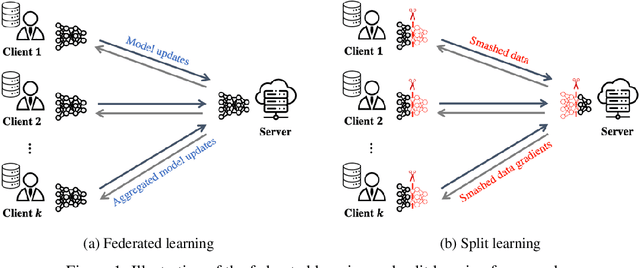
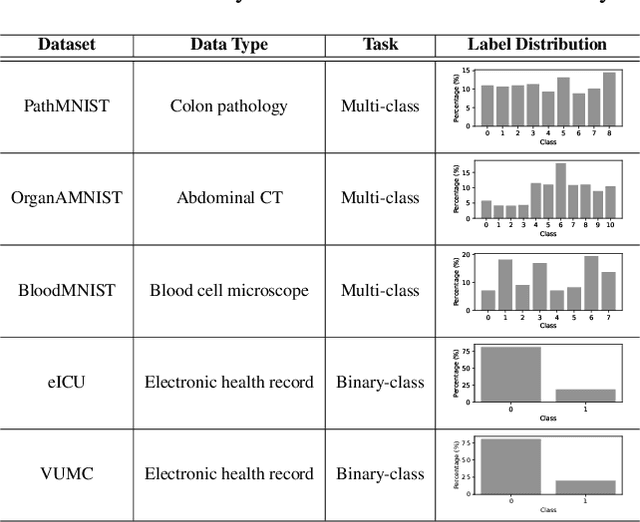
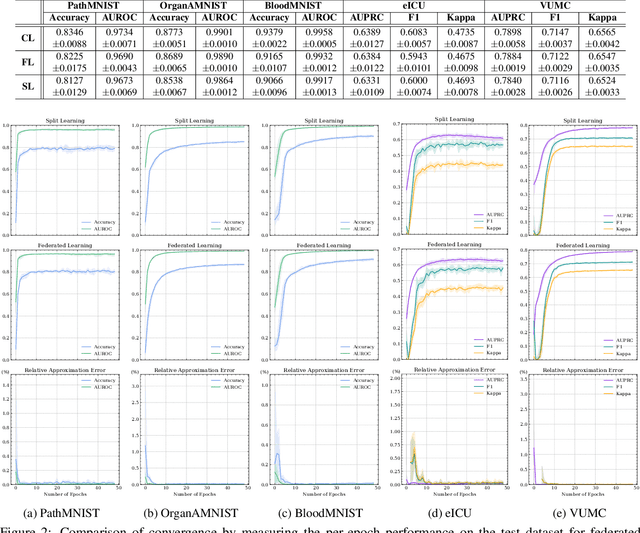
Abstract:Deep learning continues to rapidly evolve and is now demonstrating remarkable potential for numerous medical prediction tasks. However, realizing deep learning models that generalize across healthcare organizations is challenging. This is due, in part, to the inherent siloed nature of these organizations and patient privacy requirements. To address this problem, we illustrate how split learning can enable collaborative training of deep learning models across disparate and privately maintained health datasets, while keeping the original records and model parameters private. We introduce a new privacy-preserving distributed learning framework that offers a higher level of privacy compared to conventional federated learning. We use several biomedical imaging and electronic health record (EHR) datasets to show that deep learning models trained via split learning can achieve highly similar performance to their centralized and federated counterparts while greatly improving computational efficiency and reducing privacy risks.
High speed free-space optical communication using standard fiber communication component without optical amplification
Feb 27, 2023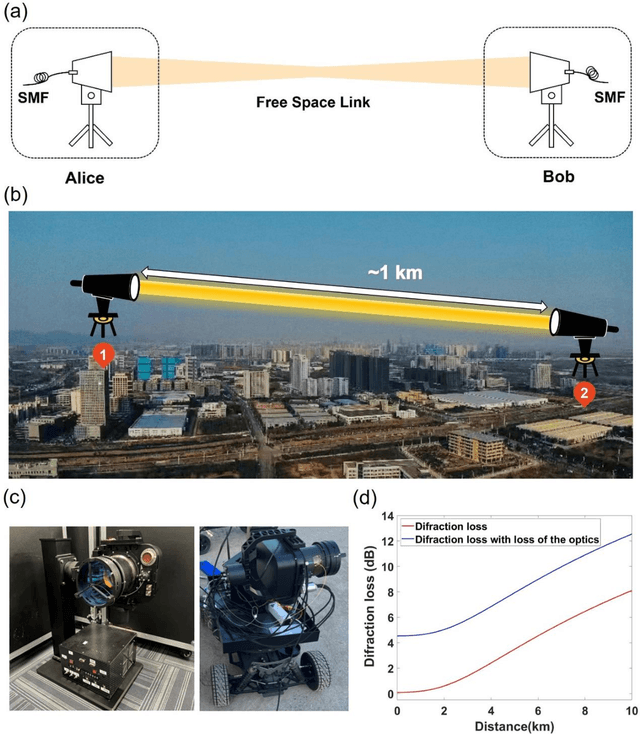
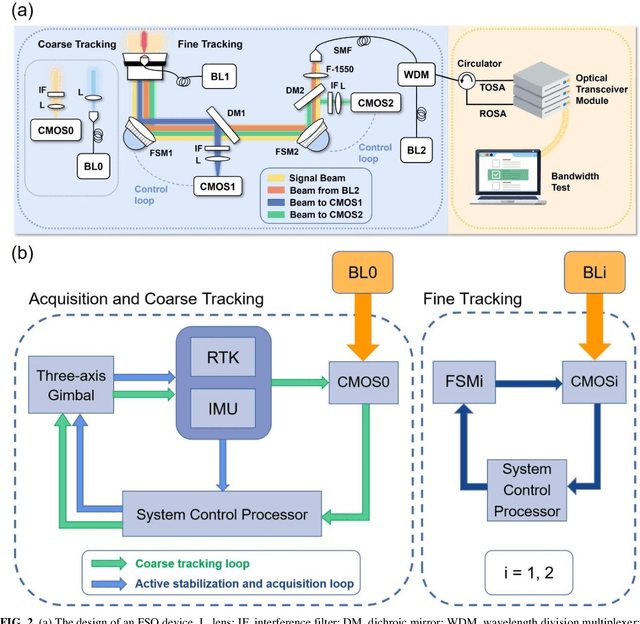
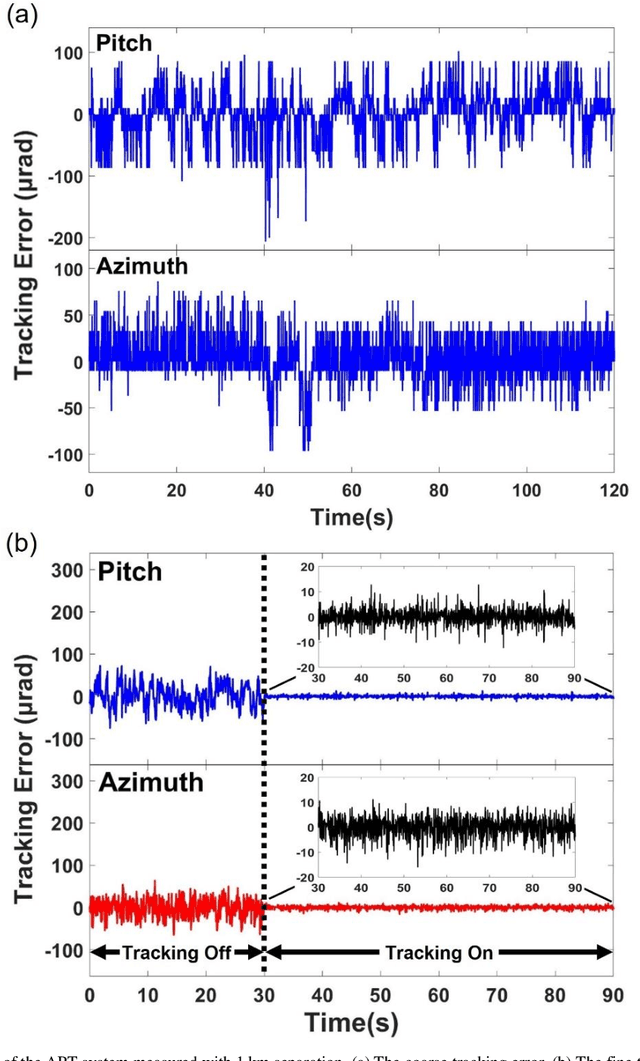
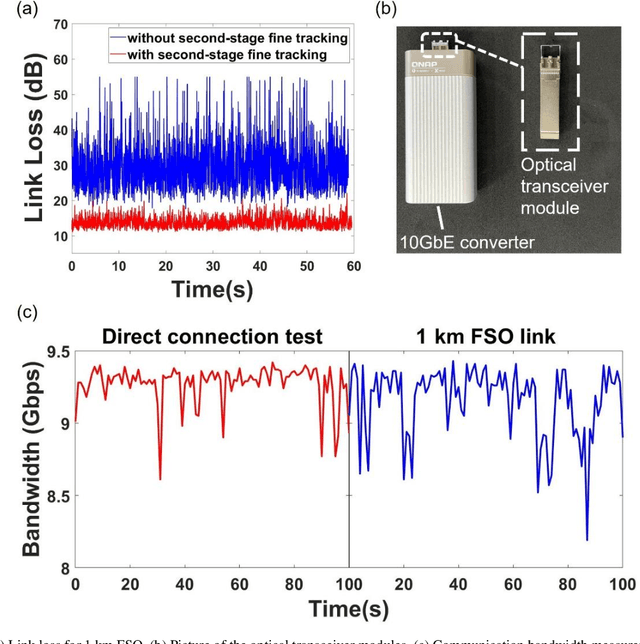
Abstract:Free-space optical communication (FSO) can achieve fast, secure and license-free communication without need for physical cables, making it a cost-effective, energy-efficient and flexible solution when the fiber connection is absent. To establish FSO connection on-demand, it is essential to build portable FSO devices with compact structure and light weight. Here, we develop a miniaturized FSO system and realize 9.16 Gbps FSO between two nodes that is 1 km apart, using a commercial fiber-coupled optical transceiver module with no optical amplification. Basing on the home-made compact 90 mm-diameter acquisition, pointing and tracking (APT) system with four-stage close-loop feedback, the link tracking error is controlled at 3 {\mu}rad and results an average coupling loss of 13.7 dB. Such loss is within the tolerance of the commercial optical communication modules, and without the need of optical amplifiers, which contributes to the low system weight and power consumption. As a result, a single FSO device weighs only about 12 kg, making it compact and portable for potential application in high-speed wireless communication. Our FSO link has been tested up to 4 km, with link loss of 18 dB in the foggy weather in Nanjing, that shows longer distances can be covered with optical amplification.
 Add to Chrome
Add to Chrome Add to Firefox
Add to Firefox Add to Edge
Add to Edge